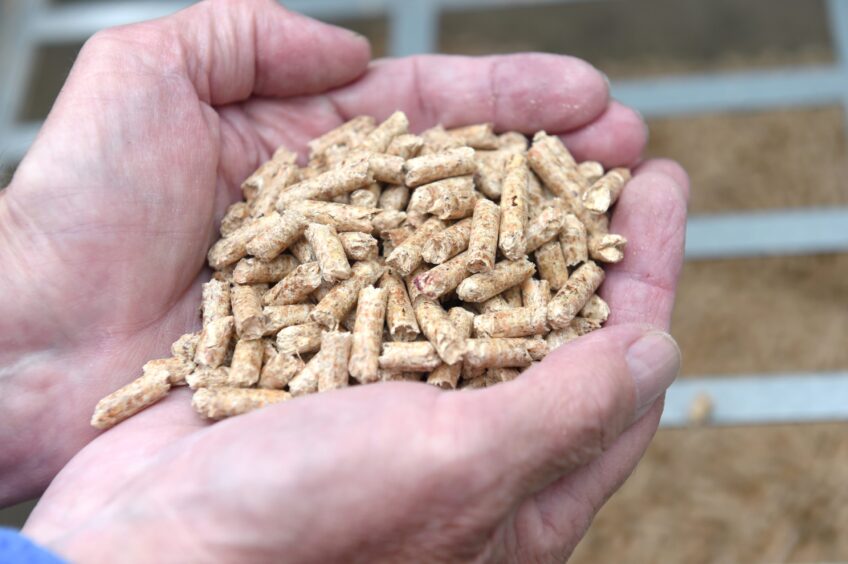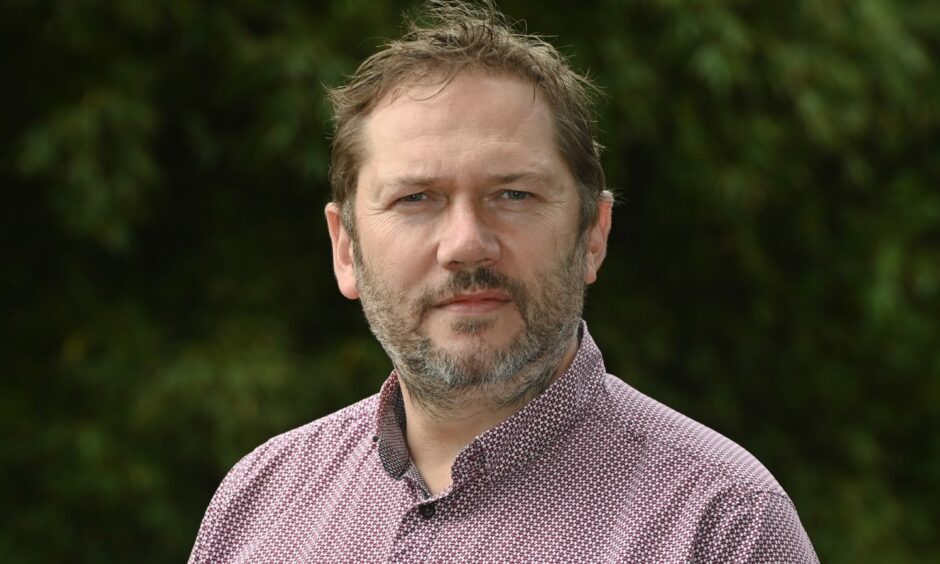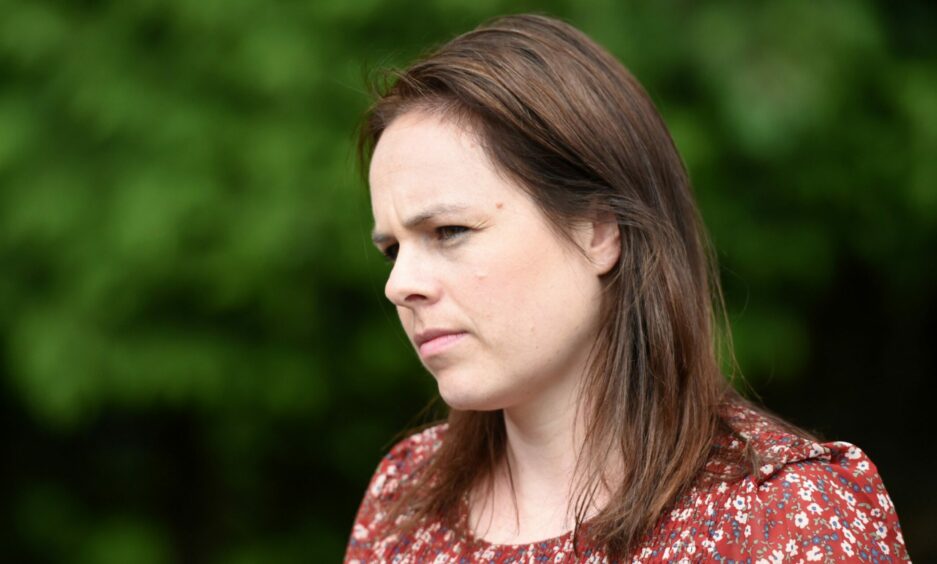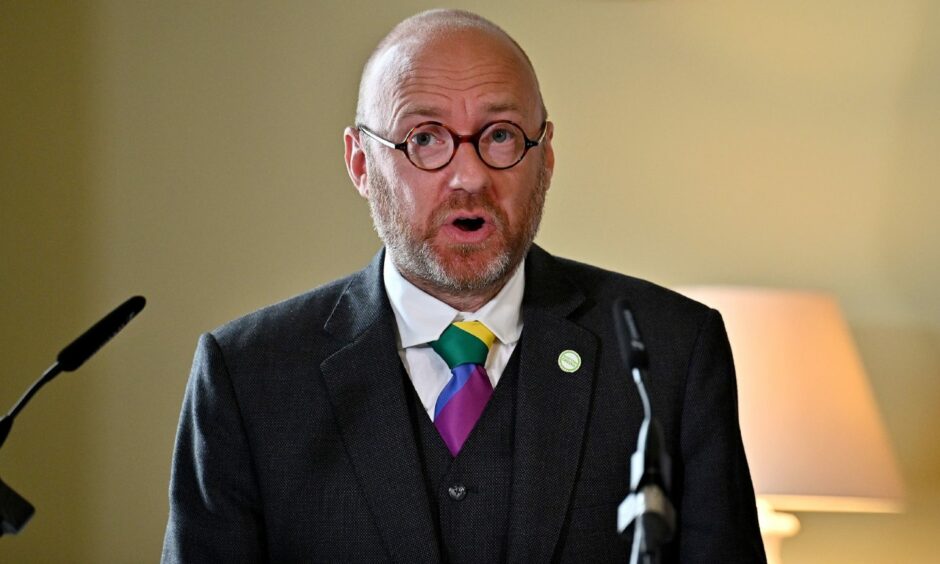Scotland’s crackdown on wood-burning domestic heating descended into farce yesterday as it emerged it effectively bans biomass boilers in new homes – while people installing them in existing properties can still claim up to £9,000 to do so.
The government faced uproar from rural communities after new regulations came into force at the beginning of this month that broadly ban wood burning stoves from being installed in newly built homes.
It was then forced to row back on that position to allow stoves to be built in these properties for emergency purposes only.
The policy also applies to biomass boilers, which use sustainably sourced pellets made from woodchips, sawdust, straw and other plant mater, instead of burning fossil fuels.
It means some families will be prohibited from installing the systems in their homes, while others are given thousands of pounds in subsidies.
The government’s own policy, which it took more than 24 hours to confirm to us, states all homes built after April 1 must be fitted with “clean” heating such as heat pumps.
But grant funding of up to £9,000 is available for biomass boilers for existing properties where an applicant can provide evidence that a heat pump is not suitable.
The boilers can be installed in new homes for emergency use only but require a special exemption to be granted.
The rules also apply to those looking to convert an existing property, such as an outbuilding, into residential accommodation.
‘Shoddy legislation’
Scottish Conservative North East MSP Douglas Lumsden accused ministers of being “all over the place on this ban” and stopping rural communities from heating their homes “while subsidising others elsewhere”.
He said: “This latest shoddy legislation again demonstrates their contempt for rural Scotland – and there’s still no Scottish Government guidance on how exemptions will work.
“Wood burners are an important, if not crucial, backup for people living off the energy grid. We’ve witnessed major storms in the last few years which took power out for thousands, for days and weeks at a time.
“You can’t have one family barred from using responsibly sourced wood, while offering to subsidise others.”
Rural areas in Scotland, including in Tayside and Fife, have been hit particularly hit by soaring energy bills in the past couple of years.
We previously reported calls to an energy advice service had soared as residents sought help.
In January last year, we also revealed 33% of properties in Perth and Kinross were not on the gas grid.
The new regulations have no effect on homes that already have wood burning systems installed but the government is developing proposals for existing buildings.
The move has prompted concern from rural communities across Scotland who rely on burning wood, especially during power cuts and extreme weather.
‘Disaster for small communities’
Kate Forbes, the SNP MSP for Skye, Lochaber and Badenoch, said the rules may impact many living in her constituency.
On X, formerly known as Twitter, she said she is seeking “urgent clarification” from the government. She said she has concerns for “older residents who rely on them during a time of crippling energy price rises”.
Meanwhile, an account representing the Inner Hebridean island of Eigg also took to social media to say banning wood burning stoves would be a “disaster” for communities like theirs.
It said: “[The stoves] are a key part of our net zero by 2030 strategy. Practical and cheap to fit compared to heat pumps.
“They provide hot water in winter when solar thermal can’t. Island timber harvesting provides local affordable fuel and jobs.”
Scottish Land & Estates, whose members provide homes for around 13,000 families across rural Scotland, said a lack of effective communication and understanding from government is creating “unbridled frustration”.
Policy adviser Anna Gardiner said: “For many people living in Scotland’s rural and island communities, wood burners are the cheapest, most efficient way to warm their homes because of a ready supply of local timber.
“The gas grid present in cities such as Edinburgh and Glasgow does not exist in many rural settings. We do not believe a ban on installing wood-burning stoves in new rural homes is suitable at present.”
What does the government say?
A spokesman for net zero minister Patrick Harvie claimed Lumsden’s comments are misleading.
He said: “Wood burning stoves have not been banned, and the new building standard will mean new homes are built with modern and green heating systems, while allowing wood burning systems for emergency back-up where required.
“This move, which follows two consultations, has been widely welcomed as a positive step forward in our fight against climate change, and was approved unanimously by the Scottish Parliament, including Mr Lumsden’s party, when they considered the regulations last year.”





Conversation